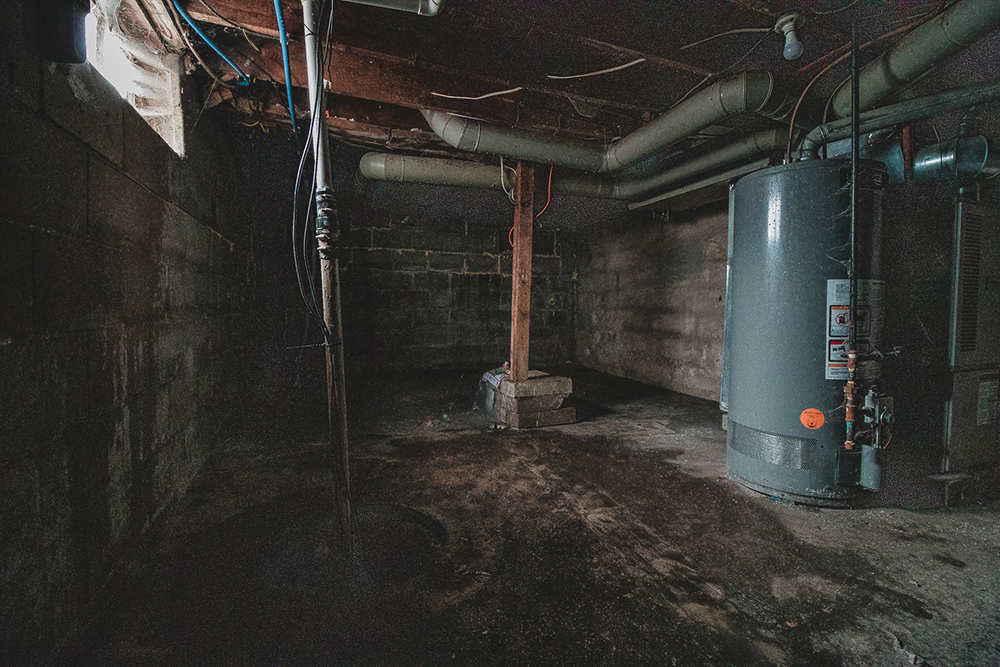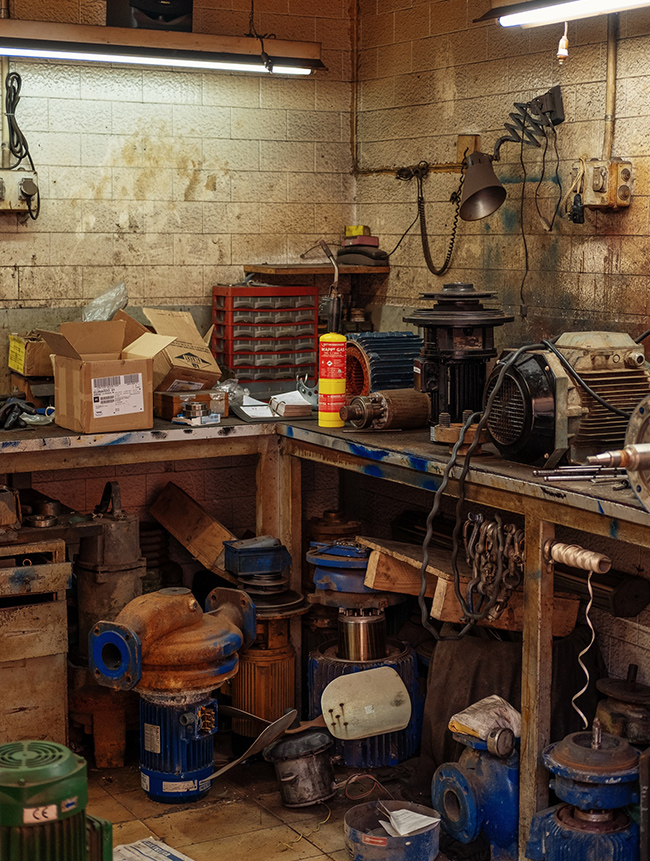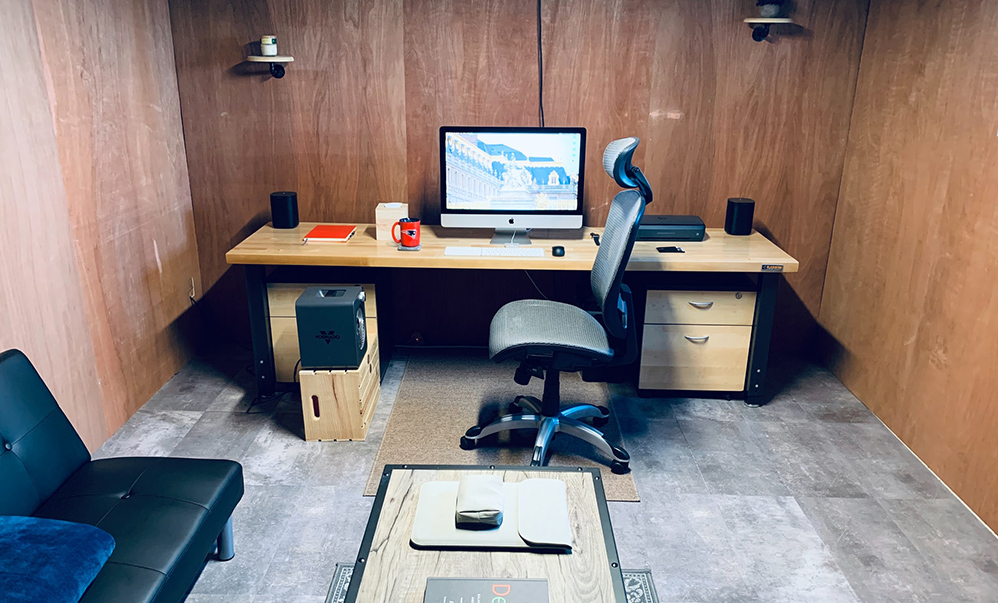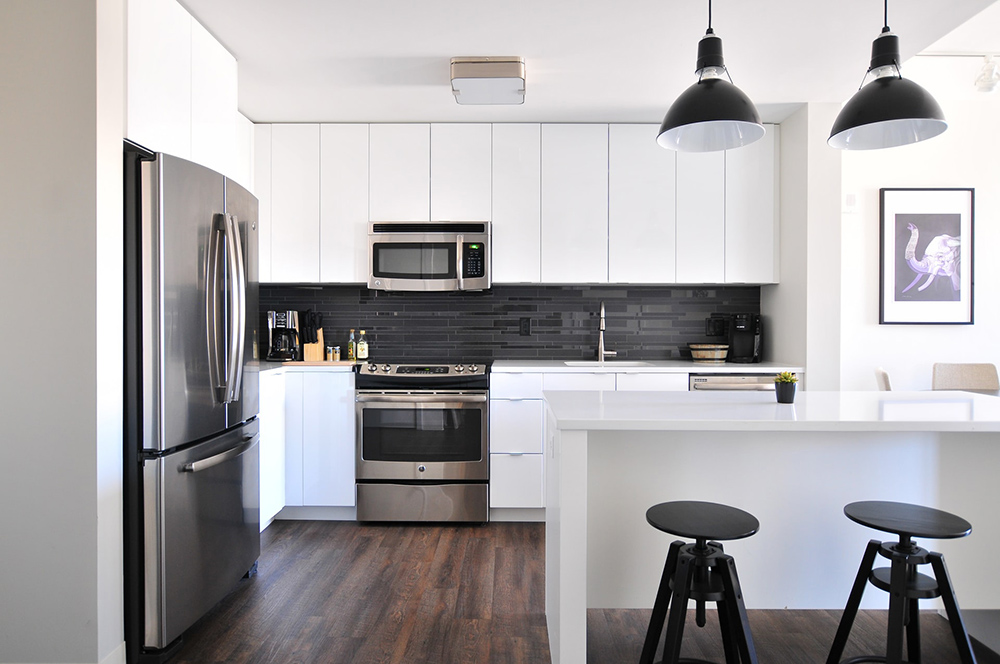
Once upon a time, Asheville basements were little more than overgrown utility areas for storing unsightly items, housing the furnace, electrical panels, and maybe even a washer and dryer. In these times, with above ground living space getting so expensive, basements have seen a transformation into living spaces, such as rec rooms with pool tables, home theater systems, or even full bedrooms and bathrooms. This may be a convenient and inexpensive way to claim more living space in your home, but if some common basement problems are not overcome first, occupants of these spaces may be putting their health at risk. Even if you don’t use your basement as a living space, some of the problems down there can affect the rest of the house. This is why a basement inspection by a licensed home inspector is essential. There are three types of basements:
- Unfinished
- Partially finished
- Finished
With some variations, the same or similar problems can exist in all three.
Unfinished basements

An unfinished basement is an old-school, bare bones concrete room with no drywall, flooring, or furniture. It might be a laundry room, Dad’s workshop, or a creepy, musty storage room. Even though an unfinished basement does not count as square footage in a real estate transaction, home inspectors are required to inspect them and report any uncovered defects. Since unfinished Asheville basements have bare concrete walls, it is relatively easy for an inspector to spot a variety of issues. Here are some common problems.
Mold & Mildew
A stale and musty odor is a sign of water intrusion in a basement. The odor is from mold, and it means the basement is not dry. Eliminating the odor means cleaning and drying the walls, woodwork, and whatever you have stored down there. But you can’t stop there; you must find and eradicate the source of the moisture. If your land slopes toward your house, moisture intrusion will always be a problem in your basement. If you get standing water down there, you will need to install a sump pump. If it just always feels and smells moist, perhaps a dehumidifier will do.
White residual deposits
Also called efflorescence, white residual deposits are found in basements that have water issues. The white residue is not a health risk of itself, but it can be an indicator of cracks in the foundation or walls in an unfinished basement. Cracks in the walls and floor may be superficial, but they also could be a problematic source of water intrusion. Your home inspector can determine whether the cracks are cosmetic or structural.
Structural Defects
Problems with walls, ceilings, and beams are easy to spot in an unfinished basement. Shoddy or incomplete joists can cause problems in the floors above. Past or present water issues can cause significant rot in wood joists, which in turn can create structural problems.
Pest Infestations
Roaches, ants, termites, and rodents may find a damp basement attractive. If the problem is moisture-related, it will not go away without drying up and eliminating the source of moisture. If you see signs of pests in your Asheville basement, your home inspector can arrange for a pest inspection.
Dangerous fumes
Basements can be contaminated with hazardous fumes. These are caused by several factors:
- Stored solvents – since basements are used as storage spaces for household chemicals, such as paint, cleaning supplies, and solvents, be sure none of these are leaking. Prolonged exposure to chemical fumes can be dangerous to your health.
- Carbon monoxide – many homes have their furnaces in the basement. This should be inspected regularly for safe operation. When not maintained, furnaces can leak deadly carbon monoxide. Keep a carbon monoxide detector in your basement and one at the top of the stairs where you can hear it if it goes off. If the alarm sounds, get out of the house quickly and call your gas company from a safe distance.
- Radon gas – produced by the radioactive decay of uranium, radon can be found in the soil, rocks, and even in the air. Outdoors it poses no danger, but in the confines of a basement it can build up to dangerous levels. Radon levels are very hit or miss in Western North Carolina, and radon is the second leading cause of lung cancer. Your home inspector can arrange for a radon inspection. If an inspection reveals high radon levels, have your home treated by a radon remediation expert.
Partially finished basements

A partially finished basement is just what it sounds like. Part of it is bare, but another part may have some sort of living space, such as a game room, entertainment room, workshop, or even a home office space. It may have a bathroom, but not bedrooms. There might be some drywall, but the floor could be concrete with a drain in the middle. One thing to consider seriously: If you are spending a lot of time in an unfinished basement, you need to be sure it is a safe environment. The problems mentioned above (mold, fumes, radon, etc.) need to be addressed before spending much time down there.
Finished Basements

A finished Asheville basement can be anything from a large, open area with flooring, a ceiling and drywall, to a complete living area with bedrooms, a bathroom, and even a kitchen. For a finished basement to count as square footage in a North Carolina real estate listing (MLS), it must be considered “heated space.” However, even if it doesn’t count as heated square footage, a well-constructed finished basement can still add considerable value to a home.
Finished basements are not as easy to inspect as bare basements. Drywall and flooring can cover up structural defects and signs of previous water damage. If intended as living quarters, it is essential to check for mold issues, air quality, and test for radon. When a home has a finished basement, a radon inspector will set the test there. However, for homes with unfinished basements, the inspector will set up the test above grade on the first floor. Whatever type of basement a home contains, it is always best to have it checked out thoroughly by a licensed home inspector to rule out serious issues.
Call Peter Young Home Inspections
Buying or selling a home? Never sign any contract without first getting a home inspection! Call Asheville Home Inspector Peter Young, 828-808-4980, or click here to make an appointment today.